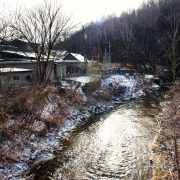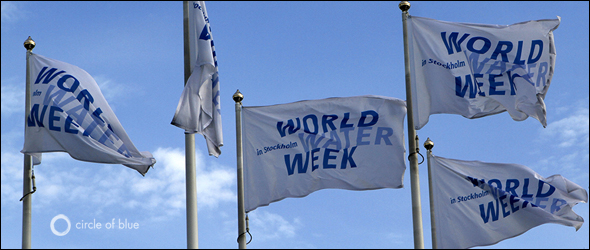The Stream, April 4: Water and Politics in South America
Under a new law, mining and oil companies in Peru will be required to hold talks with local communities about the effects of natural resource extraction on the environment and water supplies, Reuters reported. The law stops short of giving communities the power to veto potential projects.
Venezuela’s President Hugo Chávez faces criticism from within his own political party after water resources in Monagas state were contaminated from an oil spill, another obstacle to his reelection in the fall, according to The Wall Street Journal.
Rapid urbanization in China—the urban population is expected to reach 70 percent by 2030—poses challenges for providing adequate water, infrastructure and sanitation, said World Bank President Robert Zoellick, Xinhua reported.
Ohio’s state legislators have presented a revised plan for regulating water withdrawals from Lake Erie, the Associated Press reported. The Republican-backed plan would allow businesses to withdraw 2.5 million gallons (9.5 million liters) a day from the lake before having to apply for a permit, half the amount allowed in the original bill that was vetoed by the governor in 2011.
Local governments in French Polynesia are working to improve infrastructure, metering and pricing in an effort to conserve water and provide adequate supplies for drinking, the Guardian reported.
A satellite-driven water monitoring system may be expanded in Kenya with the hope that the real-time information on forage and water supplies will help livestock farmers cope with drought, according to AlertNet.
The Stream is a daily digest spotting global water trends. To get more water news, follow Circle of Blue on Twitter and sign up for our newsletter.
A news correspondent for Circle of Blue based out of Hawaii. She writes The Stream, Circle of Blue’s daily digest of international water news trends. Her interests include food security, ecology and the Great Lakes.
Contact Codi Kozacek







The looming water crisis should soon find some sound resolution thanks to novel emerging technologies like the Hall Demineralizer from Compliant Water Technologies Corp. CWT has found and patented a way to perform ozone-based atmospheric chemistry rather than the traditional aqueous chemistry.
By injecting polluted atomized water into a hyper-saturated ozone-based chamber, our water treatment overcomes the numerous historic limitations inherent in using ozone and oxygen to treat water.
Abandoned mines in Penn state (Bureau of Abandoned Mine Reclamation) are now using Compliant Water Technologies and for a fraction of the cost. Florida DEP is seriously considering this emerging tech to treat impaired streams and lakes (Lake Apopka, Lake Jesup, etc.).
Another interesting aspect of this new technology is the very-low sludge by-product since no caustic or lime are used to adjust the water pH before treatment. Just a small mobile unit (mounted on a pick-up truck can treat up to 1000/gal per minute or well over 1.2 million/gal/day). Being scalable, the speed and low cost make this technology rather appealing even to municipalities allowed to resale their recycled water for irrigation purposes.
Ariel Gaussart
Compliant Water Technologies
407-480-1781
agaussart@compliantwater.com